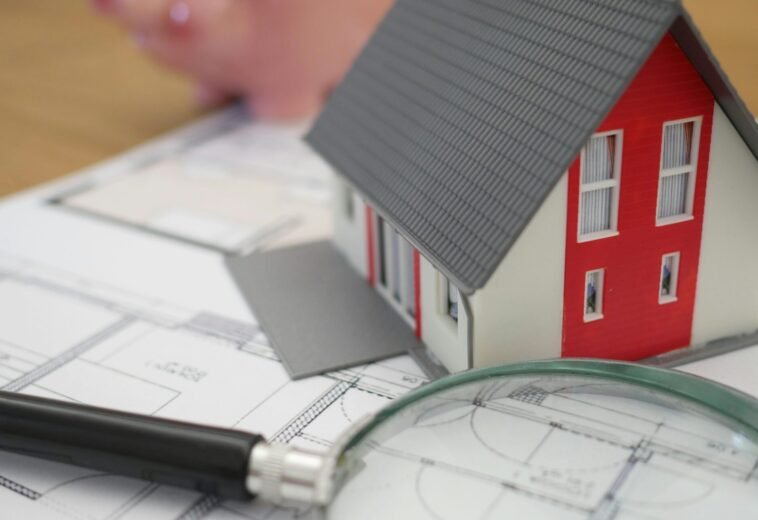What is Due Diligence in Real Estate?
What is Due Diligence in Real Estate?
Introduction
When it comes to real estate, the phrase “due diligence” often surfaces as a critical component of any property transaction. But what exactly does it mean? In the simplest terms, due diligence in real estate refers to the comprehensive appraisal of a property to ensure there are no hidden issues that could impact the investment. This process involves a thorough investigation of the property’s legal, financial, and physical aspects before finalizing the purchase.
Understanding Due Diligence in Real Estate
What is Due Diligence?
Due diligence is the process of conducting a detailed and systematic examination of a property. This practice helps buyers verify the property’s value and uncover any potential risks. The objective is to make an informed decision based on a comprehensive understanding of the property’s condition, legal standing, and market value.
Why is Due Diligence Important?
Conducting due diligence is vital for several reasons:
- Risk Mitigation: Identifies potential issues that could lead to financial loss.
- Informed Decision Making: Provides a clear picture of the property, enabling buyers to make educated decisions.
- Legal Compliance: Ensures that the property complies with local laws and regulations.
- Investment Protection: Helps in safeguarding your investment by revealing hidden defects or legal encumbrances.
Key Components of Due Diligence in Real Estate
Legal Due Diligence
Legal due diligence involves reviewing all legal aspects of the property. This includes:
- Title Search: Verifying that the seller holds clear and marketable title to the property.
- Zoning Laws: Checking if the property complies with local zoning laws and regulations.
- Easements and Encroachments: Identifying any easements (rights of way) or encroachments (unpermitted use of property) that may affect the property’s use.
Financial Due Diligence
Financial due diligence focuses on the economic aspects of the property:
- Property Valuation: Ensuring the property is priced appropriately based on market conditions.
- Operating Expenses: Reviewing the property’s current operating expenses to understand its profitability.
- Tax Obligations: Checking for any outstanding property taxes or assessments.
Physical Due Diligence
Physical due diligence involves a detailed inspection of the property’s physical condition:
- Property Inspection: Conducting a thorough inspection to identify any structural or maintenance issues.
- Environmental Assessment: Assessing the property for environmental hazards such as asbestos, lead paint, or soil contamination.
- Building Code Compliance: Ensuring the property complies with local building codes and safety regulations.
Steps Involved in the Due Diligence Process
Step 1: Preliminary Research
Before committing to a property, conduct preliminary research to gather initial information. This includes:
- Reviewing property listings and public records.
- Consulting with real estate agents and professionals.
Step 2: Title Search and Review
Engage a title company or attorney to perform a title search. This will help confirm that the seller has a clear title and there are no outstanding liens or disputes.
Step 3: Property Inspection
Hire a certified inspector to evaluate the property’s physical condition. The inspection should cover structural elements, plumbing, electrical systems, HVAC systems, and more.
Step 4: Financial Review
Examine the property’s financial statements, including:
- Current income and expenses.
- Lease agreements (if applicable).
- Historical financial performance.
Step 5: Environmental and Regulatory Assessment
Ensure the property complies with environmental regulations and is free from hazardous materials. This step may involve:
- Environmental site assessments (ESA).
- Reviewing local zoning and land use regulations.
Step 6: Negotiation and Final Decision
Based on the findings from the due diligence process, negotiate with the seller to address any issues or adjust the purchase price accordingly. Once satisfied, proceed to finalize the purchase.
Common Challenges in Due Diligence
Incomplete Documentation
Sometimes, sellers may not have all necessary documents readily available, causing delays. Ensure all required documents are collected before proceeding.
Hidden Defects
Some issues may not be apparent during initial inspections. Engage professionals to conduct thorough assessments to uncover hidden defects.
Market Fluctuations
Real estate markets can be volatile. Stay informed about current market trends to make the best investment decision.
Benefits of Conducting Due Diligence
Avoiding Financial Loss
Identifying potential problems before purchasing can save you from unexpected repair costs or legal disputes.
Ensuring Legal Compliance
Ensuring the property complies with all legal and regulatory requirements prevents future legal issues.
Enhancing Investment Value
Proper due diligence helps in buying properties that offer good value, ensuring a profitable investment.
Conclusion
Due diligence in real estate is an indispensable part of any property transaction. By thoroughly investigating the legal, financial, and physical aspects of a property, buyers can make informed decisions, mitigate risks, and protect their investments. Whether you’re a first-time homebuyer or a seasoned investor, understanding and performing due diligence is crucial for achieving success in real estate.
By following a systematic due diligence process, you can uncover potential issues, negotiate better deals, and ensure that your real estate investment is sound and profitable.
- 21 views





